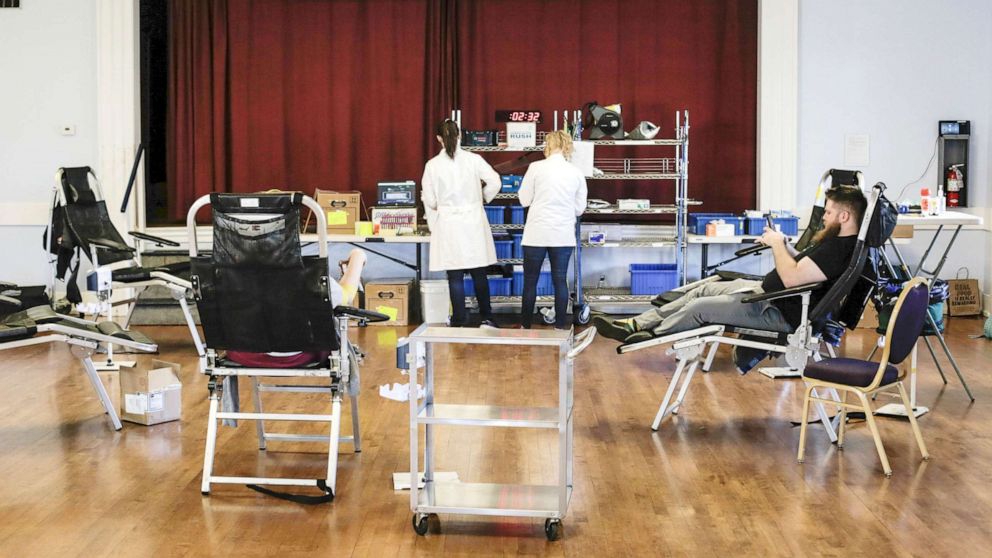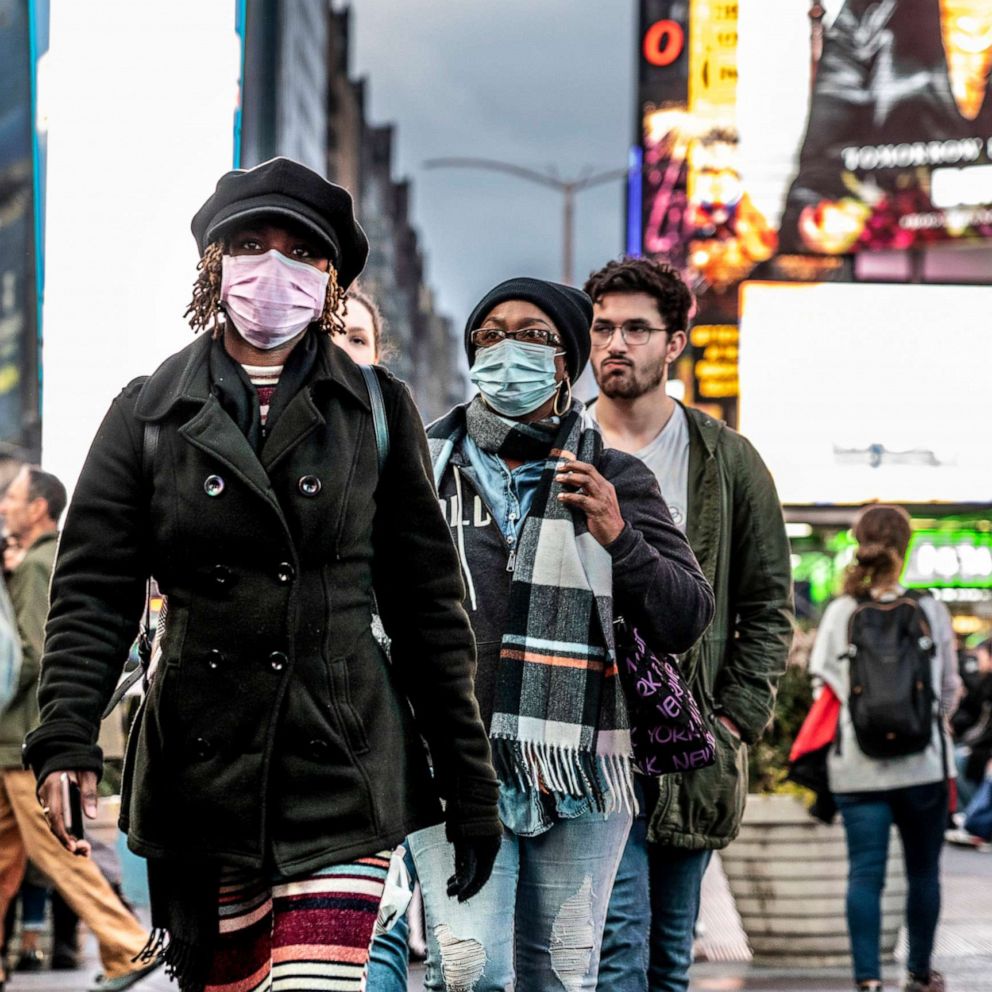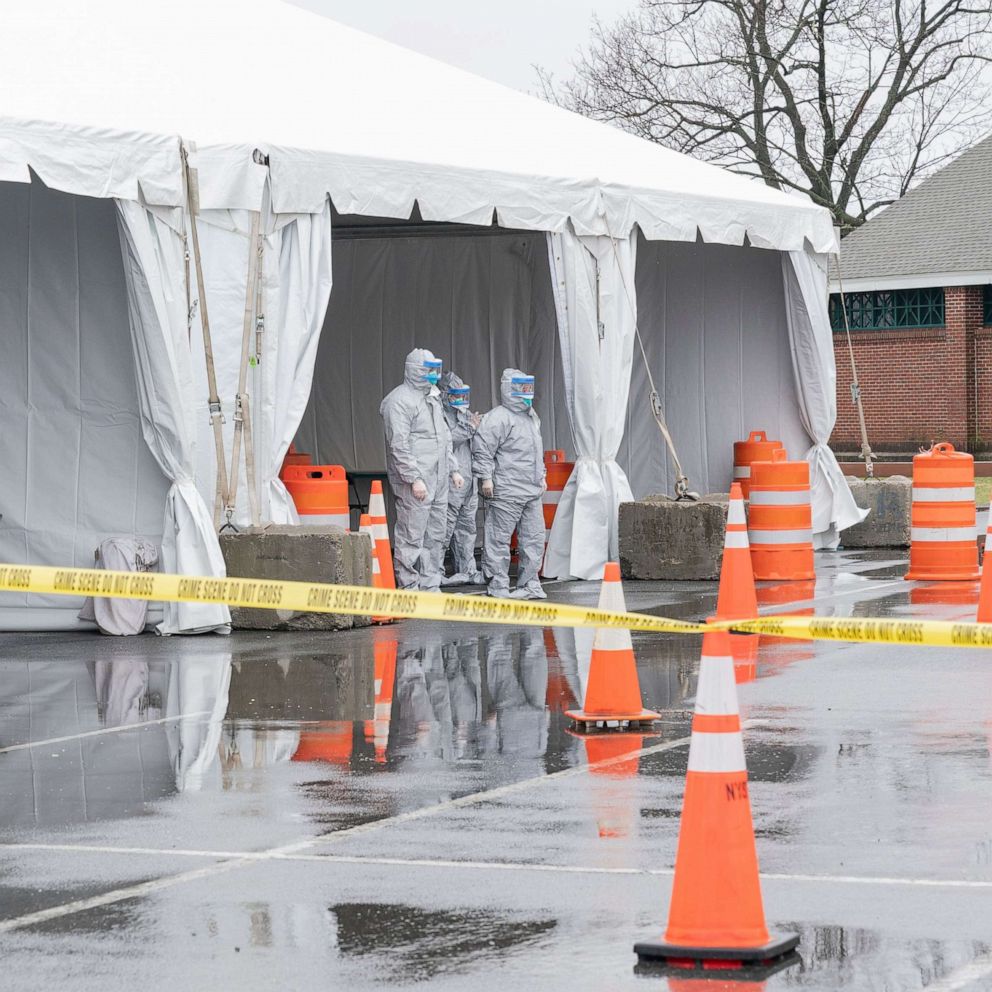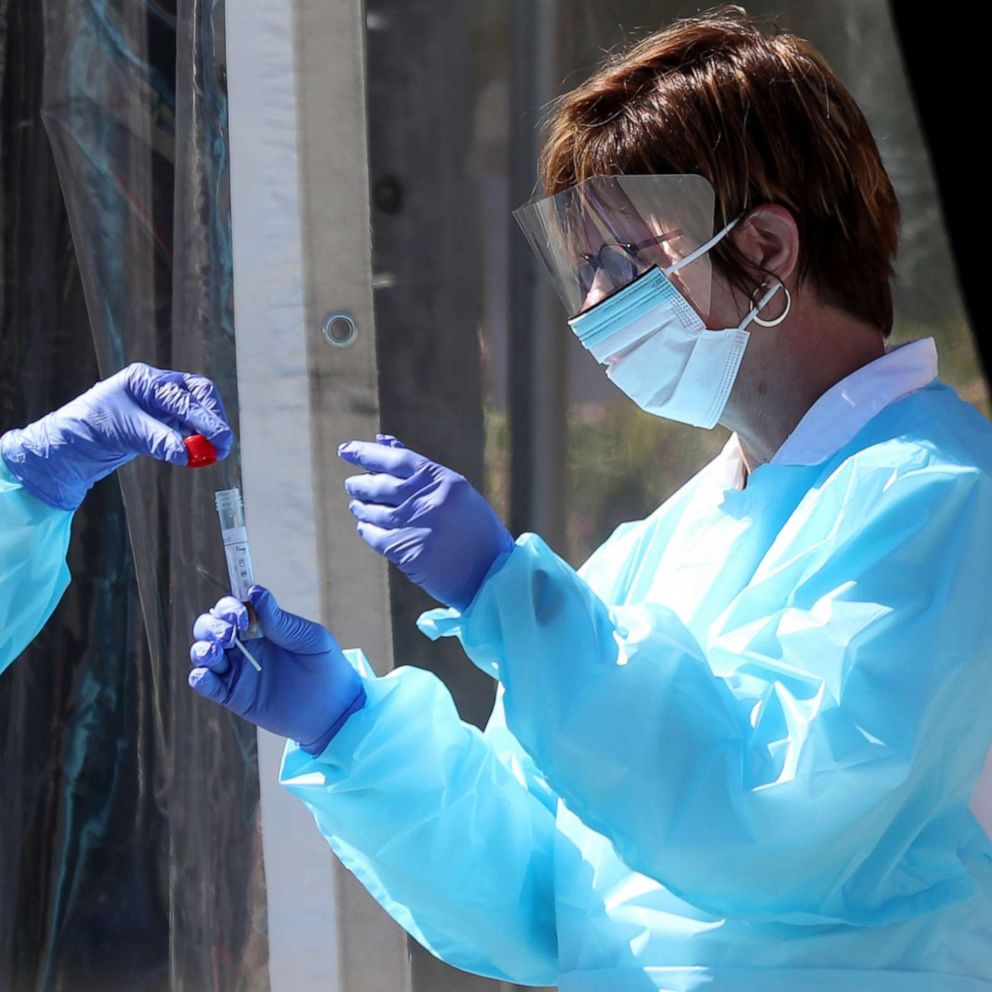American Red Cross faces 'severe blood shortage' as cancellations increase due to coronavirus
The American Red Cross said they're now facing a "severe blood shortage," as blood drives across the country continue to be cancelled as concerns over the novel coronavirus pandemic grow.
"Right now, the Red Cross is distributing blood donations faster than they are coming in," Paul Sullivan, senior vice president of the American Red Cross, told ABC News.
"As concerns about COVID-19 grow and more blood drive cancellations come, the Red Cross and other blood collection organizations as well as hospitals across the country have heightened concerns about our ability to meet patient needs," Sullivan continued. "That’s why we are asking healthy individuals to roll-up a sleeve and give blood now."
Tune into ABC at 1 p.m. ET and ABC News Live at 4 p.m. ET every weekday for special coverage of the novel coronavirus with the full ABC News team, including the latest news, context and analysis.
As of Tuesday morning, nearly 2,700 Red Cross blood drives in the U.S. have been cancelled, resulting in approximately 86,000 fewer blood donations, according to a statement from the organization.
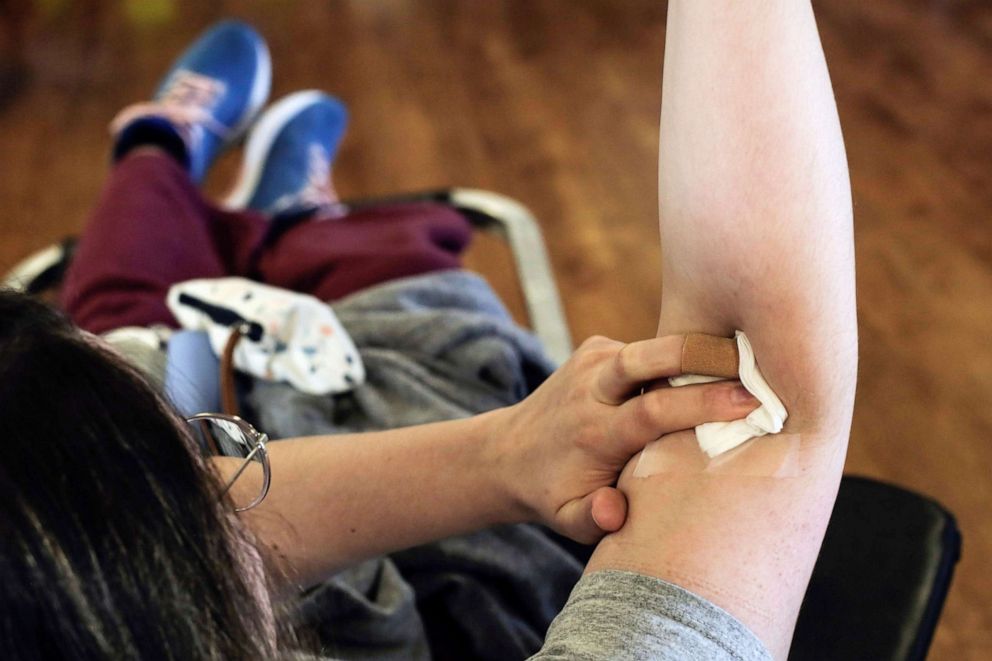
These numbers are a dramatic increase from what was reported just last week. On Friday, Red Cross told ABC News that 600 blood drives had been cancelled -- resulting in only about 18,000 fewer blood donations. The impact has increased almost five times -- a product of both fewer donors and blood drives.
"Over the last week we’ve seen both fewer donors come to our blood drives, and then over the coming weeks we’ve seen a number of organizations cancel their blood drives," Sullivan said.
Sullivan said the need for blood products hasn't changed amid the crisis, and "we have seen our supply decline."
"It’s concerning and that’s why we’re making the ask now of people to come out and support our blood drives and we’ll work hard to make sure they remain safe, but we do need them because we need to help patients at hospitals," he said.
Some hospitals are already seeing the effects of this blood shortage. In the Red Cross statement on Tuesday, a Michigan doctor spoke about the consequences he is seeing in his hospital.
"I am looking at the refrigerator that contains only one day’s supply of blood for the hospital," Dr. Robertson Davenport, director of transfusion medicine at Michigan Medicine in Ann Arbor, said in the statement. "The hospital is full. There are patients who need blood and cannot wait."
In their statement, Red Cross wrote a blood shortage can impact patients who need surgery, victims of car accidents or individuals who are suffering from cancer. Sullivan explained that the organization is working hard to avoid a situation where doctors would have to decide how best to use the blood they have.
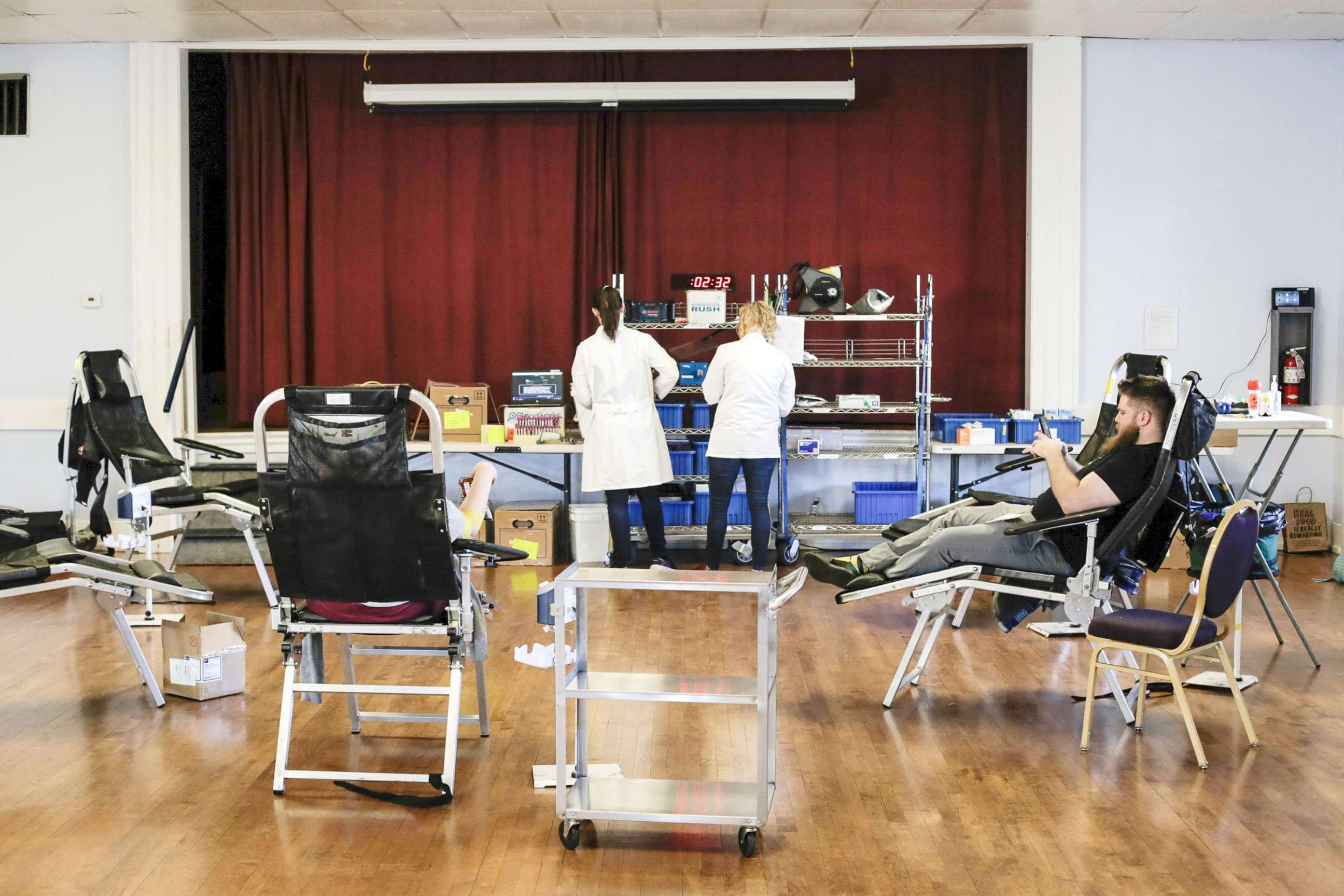
"Right now, no one receives a blood transfusion who absolutely doesn’t need it," Sullivan said, adding that some "people need these transfusions, they’re literally life-sustaining, life-saving."
He continued, "So we are again working hard to make sure we don’t put doctors in that position of having to make very difficult choices about how to utilize blood products to help save people’s lives."
Red Cross is anticipating more drives to be cancelled in the near future. Because of this, they continued to stress the importance of donating blood, and encouraging healthy individuals to become donors.
"As a nation, this is a time where we must take care of one another including those most vulnerable among us in hospitals," Gail McGovern, president and CEO of Red Cross, said in the statement. "One of the most important things people can do right now during this public health emergency is to give blood. If you are healthy and feeling well, please make an appointment to donate as soon as possible."
What to know about coronavirus:
- How it started and how to protect yourself: coronavirus explained
- What to do if you have symptoms: coronavirus symptoms
- Tracking the spread in the US and Worldwide: coronavirus map
The organization explained that while they understand people may be "hesitant" to visit a blood drive, they are implementing several precautions to ensure that donors and staff remain healthy.
The precautions include taking the temperature of all individuals before they enter a blood drive location, providing hand sanitizer throughout the donation process, spacing beds according to social distancing standards and disinfecting all surfaces and equipment.
"We understand why people may be hesitant to come out for a blood drive but want to reassure the public that blood donation is a safe process, and that we have put additional precautions in place at our blood drives to protect the health and safety of our donors and staff," McGovern said in the statement.
